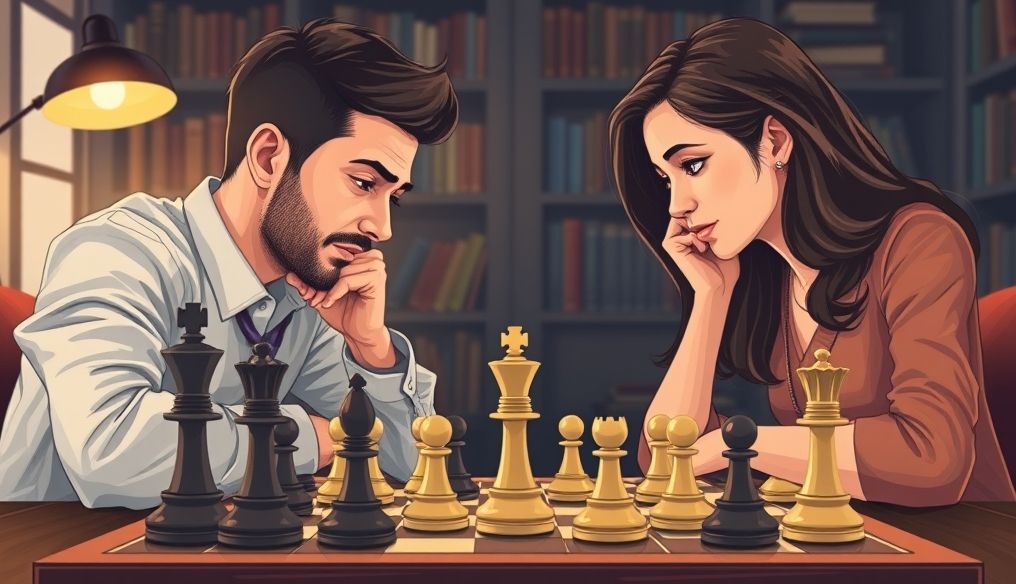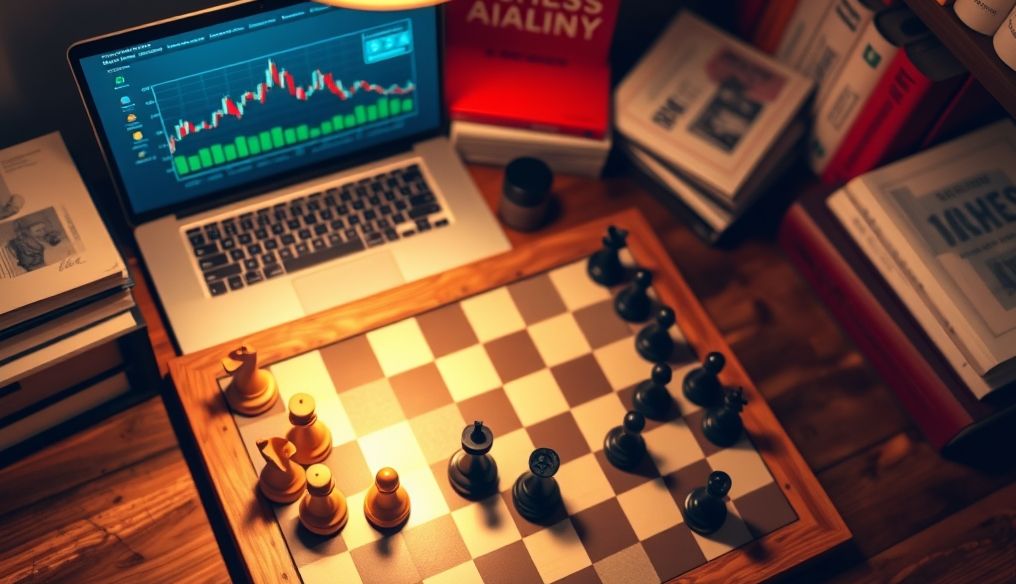How Does Chess Benefit Strategic Thinking and Improve Your Skills?
Chess, the royal game with roots stretching back centuries, is not just a form of entertainment, but a powerful tool for developing strategic thinking. This game requires careful planning, deep analysis, and the ability to predict the opponent's moves, making it an excellent mental exercise. In this article, we will explore in detail how chess can improve your strategic thinking skills, both in your personal and professional life.
1. Developing Planning and Forecasting Skills
Chess forces you to think several steps ahead. You must anticipate your opponent's potential moves and plan your reactions accordingly. This continuous exercise strengthens your ability to plan for the future and predict the potential outcomes of your actions.
- Long-term planning: Chess requires developing a comprehensive strategy to win the game, which may extend over several moves.
- Predicting opponent moves: You must be able to anticipate what your opponent might do and prepare yourself to face it.
- Analyzing risks and opportunities: You must weigh the potential risks of each move and assess the opportunities available to achieve your goals.
2. Enhancing Problem-Solving Ability
Each chess game is a series of problems that must be solved. You must analyze the current situation, identify strengths and weaknesses, and find appropriate solutions to overcome the challenges you face. This continuous process enhances your ability to solve problems in general.
Example: If your opponent threatens an important piece, you must find a way to protect it or move it to a safe place. This requires quick and creative thinking.
3. Improving Focus and Attention
Chess requires full concentration and careful attention to every detail. Any slight distraction can lead to costly mistakes. Therefore, practicing chess regularly helps improve your ability to focus and pay attention for long periods.
Studies: Many studies have shown that children who play chess regularly improve their performance in school, especially in mathematics and reading.
4. Developing Decision-Making Ability
In chess, you must make quick and thoughtful decisions under pressure. Each move you make has an impact on the course of the game, so you must weigh all available options before making a decision. This continuous exercise strengthens your ability to make difficult decisions in life and at work.
Example: Do you sacrifice a piece to protect the king? Do you attack or defend? These decisions require careful analysis and risk assessment.
5. Enhancing Creativity and Innovation
Chess is not just about following specific rules, but also an opportunity to express creativity and innovation. You can experiment with new strategies, explore unconventional ways to win, and develop a unique playing style of your own. This continuous exercise enhances your ability to think outside the box and find innovative solutions to problems.
Example: Using an unconventional opening or sacrificing a piece to create an unexpected offensive opportunity.
6. Learning Patience and Perseverance
Chess is a difficult game that requires patience and perseverance. You will not win every game, but the important thing is to learn from your mistakes and continue to improve. These valuable lessons help you develop the qualities of patience and perseverance, which are essential for success in any field.
Tip: Don't give up if you lose a game. Analyze your mistakes and learn from them, and try to apply what you have learned in future games.
7. Improving Memory
Chess requires remembering the opponent's moves, the strategies you have used in the past, and different playing patterns. This continuous exercise strengthens your memory and improves your ability to remember and retrieve information.
Example: Remembering different openings, endgames, and specific tactics.
8. Building Self-Confidence
The better you get at chess, the more confident you become in yourself and your abilities. Winning games, solving difficult problems, and overcoming challenges enhances your sense of accomplishment and makes you more confident in your ability to achieve your goals.
Tip: Celebrate your small achievements, and don't compare yourself to others. Focus on improving your personal performance.
9. Developing Critical Analysis Skills
Chess forces you to analyze situations critically and evaluate available options. You must be able to identify strengths and weaknesses, assess risks and opportunities, and make decisions based on available evidence. These analytical skills are essential for success in any field.
Example: Analyzing a complex situation on the board to determine the best course of action.
10. Chess as a Universal Language
Chess transcends linguistic and cultural barriers. You can play with people from all over the world, regardless of their language or cultural background. This experience helps you broaden your horizons and make new friends.
In conclusion, chess is more than just a game. It is a powerful mental exercise that can improve your strategic thinking, problem-solving, decision-making, focus, creativity, and much more. Whether you are a beginner or an experienced player, practicing chess regularly can have a significant positive impact on your life.




